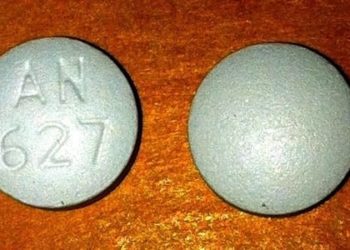Machine learning algorithm shows limited capacity for reducing health spending for radiation therapy outpatients
1. Natesan and colleagues conducted a post hoc economic analysis of a trial that identified cancer patients at high risk of acute care visits during radiation therapy.
2. Additional clinician evaluations for high-risk patients reduced acute care visit costs, while other healthcare cost savings were statistically insignificant.
Evidence Rating Level: 2 (Good)
Study Rundown: Cancer patients undergoing therapy, including radiation therapy (RT), often experience related acute symptoms that lead to unexpected hospitalizations. This phenomenon contributes to rising medical costs and impaired quality of life. In a randomized controlled trial (RCT), a machine learning (ML) algorithm identified cancer patients with a minimum 10% risk of an acute care visit during RT. These patients were randomized to receive mandatory twice-weekly clinician evaluations or the standard of care, which was evaluations per clinician discretion. Natesan and colleagues conducted a post hoc economic analysis that compared medical costs between the two trial arms, using the total medical costs as the primary outcome. Secondary outcomes included the total variable costs and preventable acute care visit costs. The authors analyzed 311 RT courses and found that savings in total medical costs failed to reach statistical significance, but the acute care visit costs were significantly lower in the intervention group than in the control group. Savings for variable medical costs and preventable acute care costs exceeded a p-value of 0.05. This study demonstrated that ML algorithms’ capacity to reduce health spending by intervening in high-risk patients was limited.
Click here to read the study in NEJM AI
Relevant Reading: Economics of Artificial Intelligence in Healthcare: Diagnosis vs. Treatment
In-Depth [randomized controlled trial]: The RCT selected XGBoost, a top-performing ML predictive model from a previous study and retrained it with its original cohort. The final model used various predictive factors, such as treatment parameters, encounter history, vital signs, age, and laboratory results. The ML model identified 361 courses with high-risk cases, and they were randomized to the intervention or control arm. The former consisted of mandatory twice-weekly evaluations by clinicians, and the latter involved standard weekly evaluations with additional evaluations per clinician discretion. Acute care visits were defined as hospital admissions and emergency department visits during RT or within 15 days of RT completion. Natesan and colleagues’ post hoc economic analysis included all patients in the RCT’s final analysis; cost data were collected from the hospital accounting system. The primary outcome was the total medical costs, and secondary outcomes were the total variable costs (adjusted for patient volume) and preventable acute care visit costs. Compared to the control group, the intervention group demonstrated mean savings of $2138 (95% CI, -$55 to $4331, p = 0.06) for total medical costs. Specifically, for acute care visit costs, the savings were statistically significant, with a mean reduction of $2293 (95% CI, $100 to $4486, p = 0.04). For unadjusted variable medical costs, the saving was $1115 per RT course (95% CI, -$99 to $2330, p = 0.07). Finally, the saving for preventable acute care visits was $1761 (95% CI, -$4706 to $8229, p = 0.58). Therefore, many of these savings failed to reach statistical significance.
Image: PD
©2024 2 Minute Medicine, Inc. All rights reserved. No works may be reproduced without expressed written consent from 2 Minute Medicine, Inc. Inquire about licensing here. No article should be construed as medical advice and is not intended as such by the authors or by 2 Minute Medicine, Inc.








